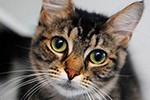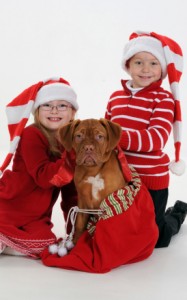
The Companion Animal Network Australia (formerly Animal Welfare League Australia, AWLA) is proud to be supporting Workplace Giving Month in June and part of the national campaign to see 1 million workplace giving donors by 2020. An initiative of the Australian Charities Fund, the aim of Workplace Giving Month is to increase awareness of workplace giving and to recognise and celebrate the impact these donations make to the Australian community.
What is Workplace Giving?
Workplace giving allows employees to make regular charitable donations from their pre-tax pay through their employers payroll system. The employee receives an immediate tax refund and is not required to keep a receipt. Employees each give small pre-tax amounts and collectively make a big difference. Australia CAN gains valuable donations, receiving 100% of donated funds.
Why participate in Workplace Giving?
Workplace giving is unique in its ability to bring together employees, employers and the charities they choose to support. When employees and employers combine their donations, workplace giving is living proof that small change can make a big difference and deliver significant benefits to the community. Research by the Australian Charities Fund highlights this collaboration enhances employee morale, loyalty and pride in their employer.
Workplace giving is convenient for employers, as it eliminates the need for employees to collect receipts or wait until the end of the year to claim a tax refund. Workplace giving is cost effective for employees and charities - giving from pre-tax income means donations cost employees less, while charities and organisations like us receive the full benefit of their donation.
What are the benefits of Workplace Giving?
Workplace giving is transparent and trustworthy for employees and employers, and avoids high fundraising costs for charities. The benefits participating employees say the enjoy the most include:
-
- Employees have the chance to make a difference by connecting with their employer and fellow workmates through the collective impact of their donations
- Donations are easy, convenient and tax effective
- Donations are affordable - you can give as much or as little as you like
How Australia CAN makes Workplace Giving Count
Workplace giving is one of the most cost effective and impactful ways to donate and Australia CAN wants to see it reach its full potential in Australia. Australia CAN is proud to be involved in workplace giving. To date, our workplace giving program has enabled us to share knowledge and work together with our member shelters to develop and promote programs which deliver high welfare standards for animals, and lay the groundwork and survey research for our Positive Ageing in the Company of Animals Campaign.
These donations have been made possible by our employer partner JB Hi-Fi. During Workplace Giving Month, Australia CAN will be working to highlight the benefits of workplace giving and showcase the positive contribution workplace giving has made to our work to care for companion animals across Australia.
Get involved
If your organisation currently has a workplace giving program, think about signing up or increasing your donation during Workplace Giving Month .
If your organisation does not currently have a workplace giving program in place, Workplace Giving Month is the perfect time to suggest this as an addition to your existing community program.Visit our Workplace Giving for Employers information page to find out how you can get involved.
If you are an employee who would like to make your donation work harder through workplace giving, you might like to suggest your organisation get involved with workplace giving - head to our Workplace Giving for Individuals page to learn more.
To find out more about Workplace Giving Month and the ACF, visit www.australiancharitiesfund.org.au.
Companion animals are bought and sold online every day. Take a quick internet search and you’ll come across an endless stream of web store and classified ads for kittens and puppies of all shapes, sizes and breeds.
Heartbreakingly, many of these seemingly innocent ‘for sale’ ads can be traced back to irresponsible breeders and directly support the unscrupulous actions of the puppy factory trade.
A recent investigation by Animals Australia has confirmed this damning link, exposing the secret ties between one of the largest puppy factories in Australia, pet stores and web stores like the Trading Post.
Join us in support of Animals Australia’s call to the Trading Post to stop puppy factories from advertising on their site and only accept ads from legitimate animal shelters – stand up against this appalling practice today by adding your voice to the Animals Australia action here.
You can also make a stand by supporting the adoption of unwanted and relinquished animals instead of the purchase of animals from pet shops, online stores and backyard breeders. Animal adoption is a powerful way to make a real difference to an animal’s life, and put a stop to the puppy factory cycle.
Australia CAN continues to advocate for animal adoption and the introduction of a national consistent breeder permit system. Find out more about our policies and position statements.
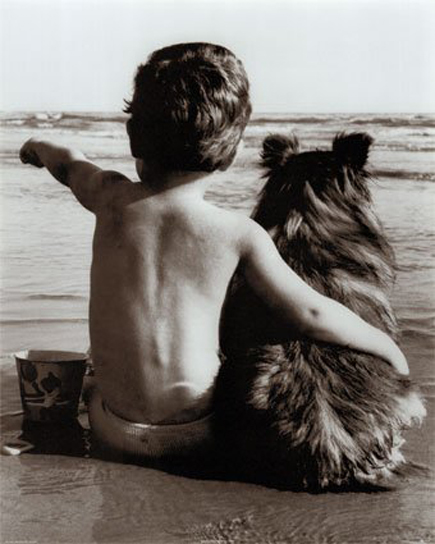
Welcoming an unwanted animal into your family is a decent and rewarding decision. If you have the time, resources and lifestyle to give an animal a loving and permanent home, adopt from a shelter or rescue organisation. Adopted pets can make the best companions and our affiliated shelters receive thousands of letters, emails and photos from happy families enjoying life with their adopted pets – here’s just one of them.
Shelters have mixed and pure bred animals in need of permanent and loving homes and can provide useful information about their health and personality. Adopted pets are already vaccinated, de-sexed, micro-chipped and vet checked - a real saving. Animals in need of new homes are not 'bad or naughty', just unlucky in the lottery of life.
Animal adoption is a powerful and practical way to improve animal’s lives. To find out more about Animal Welfare League Australia's position on animal adoption, visit www.awla.org.au/aboutawla/policies.
The death of a much loved family pet can be a tough time for children and parents. Children around two or three years of age have little concept of death and may simply view it as a form of permanent sleep. Children aged between four and six years often have more difficulty in accepting death as being permanent and tend to ask lots of questions about death.
How children handle the grief can depend on the child’s age, the circumstances of the pet’s passing and the way in which the family communicates on the event. An honest but gentle account of the pet’s passing is recommended. Sometimes, little white lies designed to protect children from the harsh realities end up creating greater confusion and sadness in the long run.
Recommended for children is a picture book titled Lifetimes by Bryan Mellonie, reprinted by Bantam books in 2005. Very simply, with few words, this book explains that there is a beginning and an end. In the middle is life. Beginnings and endings are going on around us all the time, for plants, animals and humans too. The book explains death in a way that is honest and easily understood by children.
In coping with the loss of a pet, it is important as a parent to be open, honest and accepting of sadness and grief. Encourage children to show their feelings by talking, drawing and writing freely about their departed pet. Organise a ‘service’ or memorial to assist with the process of saying goodbye. Pet loss can be confusing and emotional for both children and adults. Society in general does not give bereaved pet owners "permission" to mourn openly however the associated grief is normal and necessary. Go with it.
You love your dog but does your dog love you back? They lick us, want to hang out with us, jump up to greet us with wagging tails, romp, play and sleep with us and watch over us when we’re sick. It certainly looks like they love us. A new study has been examining this unique relationship which spans thousands of years. No other animal on earth shares as close a bond with people as dogs.
The Swedish study investigated whether or not there is a link between how an owner feels about their dog and how the dog feels about the owner. Does the strength of the owner’s love for their dog have a bearing on the strength of the dogs’ bond to the owner? The researchers used a questionnaire called the Monash Dog Owner Relationship Scale, developed here in Australia. They studied dog-human interactions and how the dogs behaved when just their owner was present compared to the owner and a stranger present. They also looked at how the dog greeted the owner when they came back into the room after a short separation.
The findings suggest that owners who interact frequently with their dog have dogs showing more proximity-seeking behaviour and less independent play behaviour. This might be a consequence of being reinforced for close interaction by the owner. The dogs greeted their owner more than they greeted the stranger and spent more time close to their owner. The researchers say this shows “the owner is a unique person to the dog from whom it seeks comfort, security and reassurance.” And we love them for it!
Victoria recently announced its revised mandatory code of practice for breeding and rearing businesses, claiming it to be strictest set of regulations in the world to protect the welfare of domestic animals.
It’s come about as part of that Government's commitment to crack down on rogue puppy farms. For those interested, the Victorian government has provided tools, templates and a breeder training course on their website - www.depi.vic.gov.au/pets
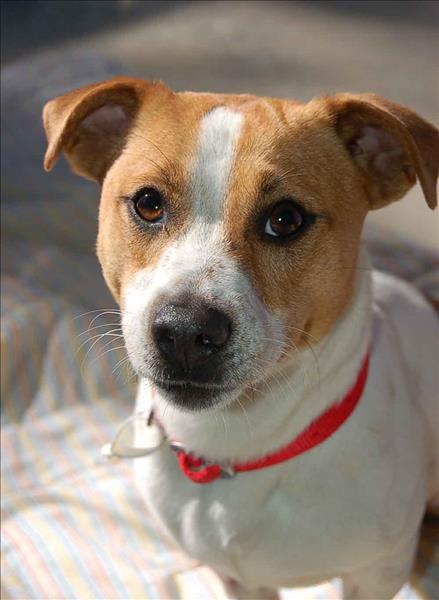
ACAN continues to lobby for national legislation to put an end to irresponsible breeding practices. At the moment, differing regulations between states provides an environment where unscrupulous operators can thrive.
A nationally consistent breeder permit system would include a strong focus on the enforcement of a strict code of practice for breeders and sellers and education of breeders, sellers and buyers.
It’s kitten season and the cuteness factor of squirmy bright-eyed kittens is hard to beat. They’re playful, comical but also vulnerable.
For kittens there’s no safety in numbers.
If you have a new kitten, one of the most caring things you can do is tee up their de-sexing operation. Statistically, de-sexed cats live much longer and healthier lives.
Some vets are now trained to perform early age de-sexing of kittens, carried out at between two to four months of age. Domestic cats can reach sexual maturity from as early as 16 weeks and have multiple litters each year.
In 2014, AWLA is promoting early-age de-sexing and providing opportunities for young vets to work alongside our shelter vets to refine their skills in early-age de-sexing.
Early age de-sexing prevents accidental pregnancy and brings health benefits for kittens. Un-desexed cats operate on continuous breeding cycles resulting in far more kittens needing homes than the number of homes offered. Adding to the large numbers of unwanted kittens are stray cats, community cats, feral cats and abandoned cats. Put simply, de-sexing saves lives.
Tis the season to be thankful for small blessings, including the furry four-footed kind that bring laughter and companionship to two-thirds of households across Australia. The right pet with the right owner equals happier, healthier people. Scientifically we know that interaction with animals makes us feel better, partly because it stimulates production of brain chemicals like oxytocin. Pets help us to feel better about our lives and when we feel better about our lives, the more motivated we are to connect and engage in positive ways. Around 85 per cent of owners credit their dog for encouraging them to exercise. Walking off the excesses of Christmas becomes a more attractive proposition with a dog by your side and most dogs are only too happy to oblige! If you don't already have a furry blessing in your household, the summer holiday break is a good time to consider adopting a dog or cat. Best wishes to all for a furry and fun festive season.
Around the country, a variety of legislative efforts are underway to improve the life of companion animals. As animal lovers, we urge you to support these efforts by engaging in the process. Providing feedback or writing a submission shows governments we all want to see the best possible welfare results for animals.
In Western Australia, new laws for cats over six months to be micro-chipped, registered and sterilised are in effect from November 1st. This will lead to a reduction in the numbers of healthy unwanted cats and kittens who are euthanased and also encourage responsible cat ownership.
In South Australia, the inaugural SA Companion Animals Shelter Summit was held recently to tackle the challenge of abandoned or needlessly euthanased companion animals.
In Tasmania, a proposed review of legislation aims to tighten rules and regulations for breeders. If you wish to make a submission, the discussion paper is available at www.dpipwe.tas.gov.au/dogs Under the proposed standards, officers will be empowered to inspect any premises where puppies are bred for sale. The cut off date for public submissions is November 22nd.
In New South Wales, it’s time to step up on behalf of greyhounds. A NSW Parliamentary inquiry is calling for public submissions to expose the practices of the greyhound racing industry. Submissions are due by Nov 6th – more information can be found at tiny.cc/greyhoundracinginquiry
A national cat action plan will also soon be available for comment through G2Z (Getting to Zero) – keep in touch by joining Animal Welfare League Australia’s Facebook page here or visit g2z.org.au
The Getting To Zero (G2Z) Summit held recently in Queensland saw a range of dynamic speakers sharing practical solutions to reduce the abandonment and euthanasia of animals. Animal welfare organisations, rescue groups and animal management teams - all exploring ways to reduce the numbers of animals entering shelters. Ways like collaborating with providers of training and behavioural services to prevent a surrender situation and instead support and preserve the bond between owner and pet. Foster programs and collaboration with rescue groups and breed clubs can mean animals don’t have to spend time in shelters at all. Targeted de-sexing programs, early age de-sexing, engaging the community through events such as national adopt-out days and a range of local coalitions - all supporting G2Z principles and driving us to join forces and move ever closer to zero euthanasia of healthy and treatable surrendered cats and dogs (at least 90% saved). For more on G2Z, you can visit the website www.g2z.org.au And of course the simple message for those considering a pet is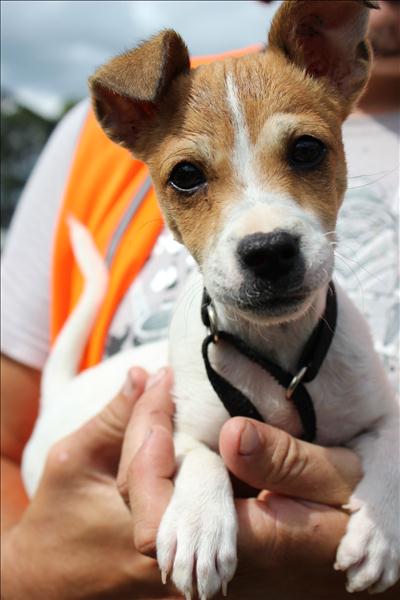 ADOPT, ADOPT, ADOPT !
ADOPT, ADOPT, ADOPT !

